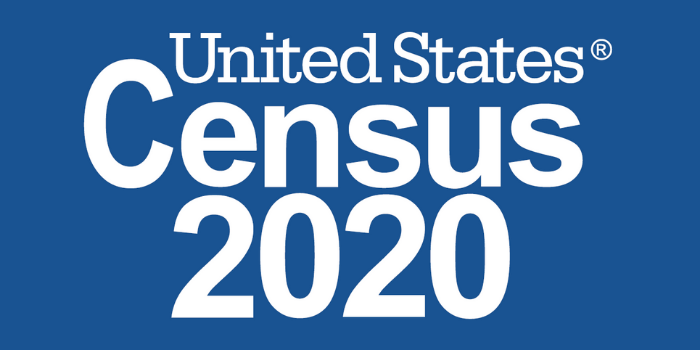
Next year, 2020, is a Census year in the United States. The official count kicks off April 1, Census Day. Here are some resources to help you and your congregation or Reform community get ready and spread the word to get out the count.
1. It’s in the Constitution
Article 1, Section 2 of the United States Constitution places the census at the core of its democratic system of governance by calling for a national count of the population every ten years. Responses from the decennial census serve as a basis for virtually all demographic information used by educators, policy makers, and community leaders in distributing government resources, redistricting, and other important decisions.
2. Political representation depends on it
After the count is over, the government uses the new enumeration and distribution of population to divvy seats in Congress among the states; some states will lose seats while others will gain. Lawmakers then use the data to draw congressional district boundaries. Redistricting, or determining which communities are within each district, is dependent on this data. As the practice of gerrymandering has increased, resulting in more electoral districts that are intentionally designed to achieve an outcome that favors the party in power, there is increased concern over how the census data is used for redistricting.
3. Money is at stake. Lots of it.
In 2015, it’s estimated that 132 government programs used information from the 2010 Census to determine how to allocate over $675 billion in federal funds. This funding is especially necessary for lower-income families who depend on programs like Head Start, Medicare, Pell Grants, and Supplemental Nutrition Assistance Program (SNAP).
4. Undercounts threaten the Census
With so much relying on the data, securing a fair and accurate Census is a significant civil rights challenge. Though the U.S. Census Bureau emphasizes its goal to count everyone once, only once, and in the right place, it often falls short and undercounts hard-to-count communities. Undercounts are significant because they leave communities disadvantaged with fewer resources and less political representation.
5. Undercounts systematically hit vulnerable populations the hardest
People in the United States can be undercounted for many reasons, including a fear of government and privacy, language barriers, and highly mobile populations. The persistent undercounts of children, people living in poverty, people experiencing homelessness, people of color, and religious minorities are of particular concern. The 2010 Census had no shortage of these undercounts, with 2.2 million children under 5, 2.1 percent of the total Black population, and more than 10 percent of African American men ages 30 to 49 being undercounted. About 700,000 Hispanics and nearly 5 percent of the Native American population were undercounted as well.
6. There is no citizenship question, but concerns remain
There is acute concern about undercounts among immigrants and undocumented people. These concerns were widely expressed as the Trump administration considered adding a citizenship question to the census, which was ultimately rejected. This, along with the administration’s anti-immigrant rhetoric and policies, will likely intimidate and decrease the response rate of people already at risk of undercounts. Despite what some have said, the Census is not meant to count citizens alone. The Census has sought to count citizens and non-citizens alike since its inception in 1790 and has not included questions about citizenship since 1960.
7. Taking a Census is a Jewish directive
Throughout history, the Jewish community has understood the responsibility to support broad participation in civic life, extending to the importance of an accurate Census. The Torah tells us that in the wilderness of Sinai, God commanded Moses to take a head count of the people (Numbers 1:2). In Ki Tisa, we are told that we count everyone by paying half a shekel and we are specifically told that “the rich shall not pay more and the poor shall not pay less.” Essentially, each person shall be equal, affirming that we must strive for a full and accurate Census wherein each individual and every community count.
8. The Union for Reform Judaism is a 2020 Census Official Partner
Guided by our Jewish tradition, the Reform Movement is all-in to help get out the count. The Union for Reform Judaism recently reaffirmed this commitment to “ensure the integrity of the 2020 Census” and “advocate for a full and fair Census.”
9. You can help Get Out the Count in your own communities
As we commit ourselves to a fair Census, here are a few ways to get involved and Get Out the Count:
- Learn more about how the faith community can play a role
- Include the Census in sermons and participate in Census Sabbath Weekend from March 27 to 29
- Identify hard-to-count populations near you and work with partners to ensure every person is counted
- Find statewide coalitions or a local Complete Count Committee to join
- Host a “Get Out the Count” informational event about the Census
- Invite representatives from the Census Bureau’s regional offices to speak at your congregation
- Become an enumerator and work part-time to help the Census run efficiently
10. Connect with us
Fill out this form to let us know what your community is doing to Get Out the Count. Share what you are doing on social media with #FaithfulCensus. If you have any questions, please reach out to Ali Rosenblatt at 202-387-2800.
Related Posts

Remarks from Rabbi Eliana Fischel at Jewish Gathering for Abortion Access

Teens from North Carolina Speak About Environmental Justice


